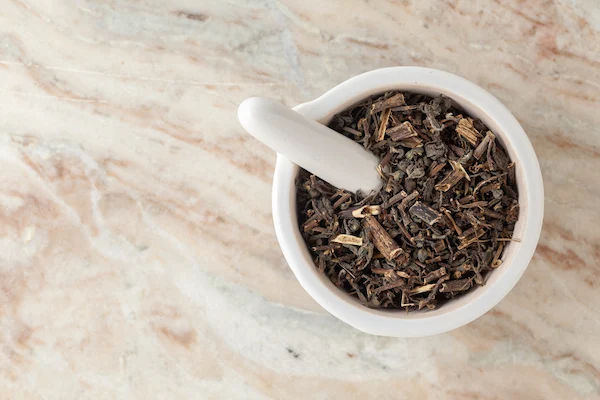Reshape Your Diet: A Guide to Lasting Health
Discover practical tips to reshape your diet, improve nutrition, and build healthy eating habits for long-lasting well-being.

Written by Dr. Siri Nallapu
Reviewed by Dr. Rohinipriyanka Pondugula MBBS
Last updated on 13th Jan, 2026

Introduction
The word "diet" often conjures images of strict rules, bland meals, and temporary suffering, all in the pursuit of shedding a few pounds. But what if we told you that a true, healthy diet is the exact opposite? A sustainable diet isn't about deprivation; it's about nourishment. It's a foundational pillar of your overall well-being, influencing your energy levels, mood, immune function, and long-term health. This guide is designed to move you away from the cycle of quick fixes and towards a positive, sustainable relationship with food. We will explore what a balanced diet truly entails, debunk common myths, and provide a practical, step-by-step plan to help you reshape your eating habits. Whether your goal is to feel more energetic, manage your weight, or simply invest in your health, this comprehensive resource will equip you with the knowledge and strategies for lasting success. Let's embark on this journey to transform your understanding of food from foe to fuel.
What Does "Diet" Really Mean? Moving Beyond Restriction
At its core, a diet is simply the sum of the food and drink consumed by a person. It's not inherently about weight loss. Every single one of us is on a diet; it's just that some are healthier than others. The key to reshaping your diet is to shift your mindset from short-term restriction to long-term nourishment.
The Problem with Fad Diets
Fad diets, like those promising extreme weight loss in 30 days, are often unsustainable. They typically eliminate entire food groups, leading to nutrient deficiencies, muscle loss, and a slowed metabolism. More importantly, they create a "yo-yo" effect where weight is quickly regained once the diet ends, often leaving you worse off than when you started. A study published in the BMJ often highlights that while fad diets can cause initial weight loss, they rarely lead to long-term maintenance.
Sustainable Dieting vs. Short-Term Fixes
A sustainable approach focuses on incorporating a wide variety of nutritious foods you enjoy. It's flexible, allowing for the occasional treat without guilt. This doesn't mean perfection; it means consistency and balance. Think of it as a lifestyle change rather than a diet. This shift is crucial for making changes that stick and truly benefit your health for years to come.
Consult a Nutritionist for the best advice
The Core Pillars of a Nourishing Diet
A healthy diet is built on a foundation of balanced macronutrients, essential micronutrients, and proper hydration. Understanding these components helps you make informed choices.
Macronutrients: Your Body's Fuel Sources
Macronutrients are nutrients your body needs in large amounts: carbohydrates, proteins, and fats. They are your primary sources of energy.
The Role of Healthy Carbohydrates
Carbs are your body's main fuel source. Instead of fearing all carbs, focus on choosing the right ones. Whole grains like oats, quinoa, and brown rice, along with fruits, vegetables, and legumes, are packed with fiber, which slows digestion and keeps you full and energised. Limit refined carbs like white bread, sugary cereals, and pastries.
The Importance of Quality Proteins
Protein is essential for building and repairing tissues, producing enzymes, and supporting immune function. Include lean sources like chicken, fish, beans, lentils, tofu, and low-fat yoghurt. A balanced diet should include protein with each meal to promote satiety and maintain muscle mass.
Why You Need Healthy Fats
Fats are vital for hormone production, brain health, and absorbing fat-soluble vitamins (A, D, E, and K). Focus on unsaturated fats found in avocados, nuts, seeds, and olive oil. Limit unhealthy saturated and trans fats found in processed foods and fried items.
Micronutrients: The Essential Vitamins and Minerals
While needed in smaller quantities, vitamins and minerals are critical for countless bodily functions, from bone health to immune support. The best way to ensure you're getting enough is to "eat the rainbow," consuming a wide variety of colorful fruits and vegetables every day.
The Critical Role of Hydration and Fiber
Water is involved in every bodily process. Aim for 8-10 glasses a day. Similarly, fiber, found in plant foods, aids digestion, helps control blood sugar, and lowers cholesterol. Most adults need 25-30 grams per day.
A Step-by-Step Plan to Reshape Your Diet
Reshaping your diet can feel overwhelming, but breaking it down into manageable steps makes it achievable.
Step 1: Assess Your Current Eating Habits
Start with a non-judgmental food diary for 3-5 days. Write down everything you eat and drink, noting how you feel before and after. This awareness is the first step toward identifying patterns and areas for improvement, such as emotional eating or a lack of vegetables.
Step 2: Set SMART Goals for Your Diet
Vague goals like "eat healthier" are hard to achieve. Instead, set SMART goals: Specific, Measurable, Achievable, Relevant, and Time-bound. For example: "I will include two servings of vegetables with my dinner, five nights a week, for the next month." This is a clear, actionable healthy eating plan for beginners.
Step 3: Build Your Plate with the Plate Method
A simple visual guide can transform your meals. Use the Plate Method:
- Half your plate: Non-starchy vegetables (broccoli, spinach, peppers, carrots).
- A quarter of your plate: Lean protein (chicken, fish, beans).
- A quarter of your plate: Whole grains or starchy vegetables (quinoa, brown rice, sweet potato).
- This method naturally promotes portion control and balance.
Step 4: Smart Grocery Shopping and Meal Prep
Your health starts at the grocery store. Stick to the store's perimeter where fresh produce, meat, and dairy are typically located. Meal prepping for a few hours on the weekend can save time and prevent unhealthy impulse eating during a busy week. Cook a large batch of grains, roast vegetables, and grill chicken to mix and match for easy lunches and dinners.
Common Diet Pitfalls and How to Avoid Them
Eating healthy isn’t always easy, and small mistakes can derail your progress.
- Pitfall: All-or-Nothing Thinking. "I ate one cookie, so my diet is ruined for the day."
- Solution: Practice flexibility. One treat doesn't negate your progress. Acknowledge it and get back on track with your next meal.
- Pitfall: Not Planning for Cravings.
- Solution: Keep healthy snacks readily available, like fruit, nuts, or yoghurt. If you crave something sweet, a piece of dark chocolate can be a satisfying option.
- Pitfall: Comparing Your Journey to Others.
- Solution: Your body is unique. Focus on how you feel more energy, better sleep rather than just the number on the scale.
When to Seek Professional Guidance
While this guide provides a strong foundation, individual needs can vary based on age, activity level, and underlying health conditions. If you have specific health concerns like diabetes, heart disease, or digestive issues, or if you're struggling to create an effective plan on your own, it's wise to consult a doctor or a registered dietitian. They can provide personalised advice tailored to your body's requirements. You can consult a nutritionist online with Apollo24|7 for convenient and expert guidance. Furthermore, if you suspect a nutrient deficiency, Apollo24|7 offers a convenient home collection for tests like vitamin D to give you a clearer picture of your health.
Get Your Health Assessed
Conclusion
Reshaping your diet is one of the most powerful investments you can make in your long-term health and happiness. It's a journey of discovery, learning what foods make you feel vibrant and energised. By moving away from the restrictive mindset of fad diets and embracing a balanced, nourishing approach, you empower yourself to build habits that last a lifetime. Remember, progress, not perfection, is the goal. Each small, positive choice adds up to significant change over time. Use the steps and principles in this guide as your roadmap. Listen to your body, celebrate your successes, and don't hesitate to seek support when needed. Start today by implementing one small change, and build from there. Your future self will thank you for the energy, vitality, and well-being you cultivate through the power of a healthy diet.
Consult a Nutritionist for the best advice
Consult a Nutritionist for the best advice

Ms. Sushma Jaiswal
Dietician
42 Years • M.Sc.(Food & Nutrition)
Bengaluru
Swasthya Nutrition, Bengaluru

Ms. Neelanjana J
Dietician
5 Years • Bsc., Msc. Nutrition and Dietetics specialised general weight management, PCOS/PCOD weight loss and Diabetes management. A clinical dietitian with 4+ year experience specializing in evidence-based, result-oriented nutrition therapy. I have extensive experience in weight loss, thyroid management, PCOD/PCOS, weight gain, and diabetes & prediabetes care. My approach is personalized, practical, and sustainable—focusing on helping individuals achieve long-term lifestyle change rather than quick fixes. I work closely with clients to understand their medical history, lifestyle, and goals, and then design customized diet plans that support hormonal balance, metabolic health, and overall wellbeing. My goal is to make nutrition simple, realistic, and effective—so you see measurable results and feel your healthiest self.Auther in Health benefits of jackfruit (Artocarpus heterophyllus Lam.) seeds: A review (2023) The Pharma Innovation Journal Co- Auther in Malnutrition in Women: A review (2023) The Pharma Innovation Journal. Highfield Level 3 in HACCP. Highfield Level 4 International Award in Food Safety Managment
Bengaluru
Apollo Clinic, JP nagar, Bengaluru

Ms. Suhita Sinha
Dietician
8 Years • BSC Food & Nutrition
Kolkata
Chikitsa Medicare Centre Pvt. Ltd.Sattelite Centre Behala Chowrasta, Kolkata

Ms. Soma Saha
clinical nutrition
17 Years • B.Sc. - Home Science (Food & Nutrition), M.Sc. - Home Science (Food & Nutrition)
Kolkata
Dr Utsa Basu Clinic, Kolkata
(50+ Patients)

Ms. Samapti Maity
Dietician
16 Years • MSc. (Clinical Nutrition & Dietitics), NDEP, Course in Maternal Infant Young Child Nutrition.Diploma in Sports Nutrition, Diploma in Diabetic educator, FODMAP Specialist
Kolkata
BIENETRE CLINIC, Kolkata
Consult a Nutritionist for the best advice

Ms. Sushma Jaiswal
Dietician
42 Years • M.Sc.(Food & Nutrition)
Bengaluru
Swasthya Nutrition, Bengaluru

Ms. Neelanjana J
Dietician
5 Years • Bsc., Msc. Nutrition and Dietetics specialised general weight management, PCOS/PCOD weight loss and Diabetes management. A clinical dietitian with 4+ year experience specializing in evidence-based, result-oriented nutrition therapy. I have extensive experience in weight loss, thyroid management, PCOD/PCOS, weight gain, and diabetes & prediabetes care. My approach is personalized, practical, and sustainable—focusing on helping individuals achieve long-term lifestyle change rather than quick fixes. I work closely with clients to understand their medical history, lifestyle, and goals, and then design customized diet plans that support hormonal balance, metabolic health, and overall wellbeing. My goal is to make nutrition simple, realistic, and effective—so you see measurable results and feel your healthiest self.Auther in Health benefits of jackfruit (Artocarpus heterophyllus Lam.) seeds: A review (2023) The Pharma Innovation Journal Co- Auther in Malnutrition in Women: A review (2023) The Pharma Innovation Journal. Highfield Level 3 in HACCP. Highfield Level 4 International Award in Food Safety Managment
Bengaluru
Apollo Clinic, JP nagar, Bengaluru

Ms. Suhita Sinha
Dietician
8 Years • BSC Food & Nutrition
Kolkata
Chikitsa Medicare Centre Pvt. Ltd.Sattelite Centre Behala Chowrasta, Kolkata

Ms. Soma Saha
clinical nutrition
17 Years • B.Sc. - Home Science (Food & Nutrition), M.Sc. - Home Science (Food & Nutrition)
Kolkata
Dr Utsa Basu Clinic, Kolkata
(50+ Patients)

Ms. Samapti Maity
Dietician
16 Years • MSc. (Clinical Nutrition & Dietitics), NDEP, Course in Maternal Infant Young Child Nutrition.Diploma in Sports Nutrition, Diploma in Diabetic educator, FODMAP Specialist
Kolkata
BIENETRE CLINIC, Kolkata
More articles from General Medical Consultation
Frequently Asked Questions
What's the difference between 'good carbs' and 'bad carbs'?
Good carbs (complex carbohydrates) are found in whole, unprocessed foods like whole grains, fruits, and vegetables. They are digested slowly because of their fiber content, providing steady energy. Bad carbs (simple carbohydrates) are found in sugary drinks, white bread, and pastries. They cause rapid spikes in blood sugar and offer little nutritional value.
I'm a beginner. What's the easiest way to start a healthy diet plan?
Start small. Don't try to change everything at once. A great first step is to add one serving of vegetables to your lunch and dinner every day. Once that becomes a habit, you can focus on another small change, like swapping sugary drinks for water or herbal tea.
How important is meal prep for maintaining a healthy diet?
Meal prep is incredibly helpful, especially for busy individuals. Spending a few hours on the weekend planning and preparing components of your meals makes it much easier to make healthy choices during the week, reducing the temptation to order unhealthy takeout.
Can I ever eat my favorite 'unhealthy' foods again?
Absolutely! A sustainable diet is inclusive, not exclusive. The 80/20 rule is a good guideline: aim to eat nourishing foods 80% of the time, and allow yourself to enjoy your favorite treats the other 20% without guilt. This prevents feelings of deprivation.
How do I know if I have a nutrient deficiency?
Common signs of nutrient deficiencies can include persistent fatigue, brittle hair and nails, poor night vision, or slow wound healing. However, these symptoms can have other causes. The most accurate way to know is through a blood test. If you're concerned, consult a doctor online with Apollo24|7 who can assess your symptoms and recommend appropriate tests.





